Apple Cider Vinegar (ACV) for chickens has had some very good press over the last ten years. There has been lots of research done where ACV has been added to one group of chicken’s water and the compared against the other ‘control’ group.
Cider Vinegar for chickens is acidic and it is this acidity that means ACV is a mild anticeptic and will kill a number of germs. In addition to this, it is claimed to act like a mild antibiotic. Antibiotics kill infectious bacteria that can cause disease in chickens.
In addition to these benefits, Apple Cider Vinegar is full of vitamins, minerals and trace elements that are beneficial to your chickens but you do have to be careful where you buy ACV from – don’t go rushing off to Tesco just yet!
Apple Cider Vinegar has been proven to help chickens with stress which is one of the main contributors to their immune system lowering and letting in disease. I use ACV during the following times:
- Moving house
- Introducing new birds
- If snow falls on the ground (a stressful change in environment for chickens)
- After a fright – eg fox attack
- After injury
- Once per month for a week for the health benefits
You can buy ACV from Amazon
Dillution Rate of Apple Cider Vinegar
ACV should be dilluted at a rate of 2% in fresh drinking water. This is the same as saying 20ml in every litre. Make sure you are using plastic water containers because it is acidic and will corrode galvanised containers. The normal rate at which to give to chickens in order to be beneficial is for one week per month. If you choose the first week of every month, it will be easier to remember. Chicks and growers can be given 0.5% ACV in water or 5ml per litre.
Do you have any information on Apple Cider Vinegar? Please leave me a comment below.

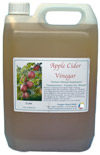
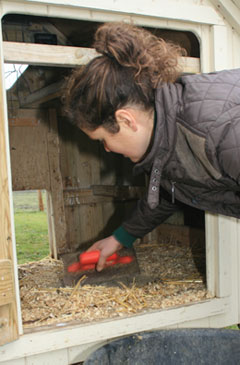
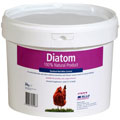
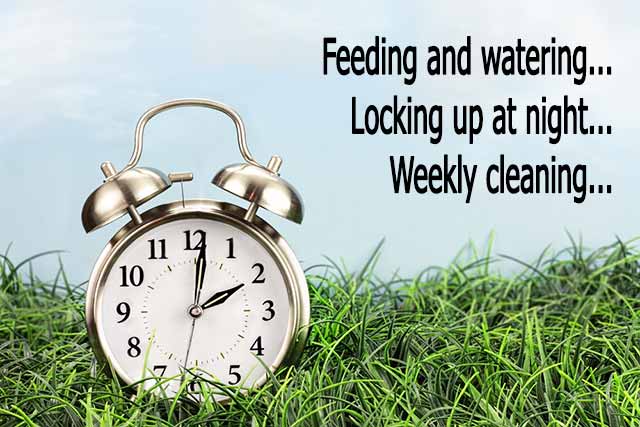

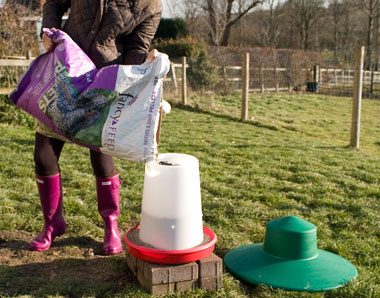
I am very happy for the research done. I am just starting poultry farming on a small scale with day-old chicks and I ‘ve found this material useful. I would like to be informed on any other important issues of this magnitude to assist me handle my birds properly. I will need to confirm if this stuff is found in our animal shop,
thanks.
You mention about not rushing out to Tesco’s as you need to be careful where you buy ACV however didn’t explain why? Is there a differance in supermarket ACV and if so what? Thanks.
The difference is the ACV sold in the supermarket is filtered and pasturised to preserve the product and kill off bacteria. This also kills off the beneficial ‘good’ bacteria. The equine / animal feed ACV is unpasturised and unfiltered.
i have tried tesco and pet shops and could not find any ACV anywhere
so i bought two large bottles in the local health shop,
now my wife and i plus my chickens enjoy a good drink of ACV every day.
You must get the unrefined version – which can be found in health shops but isn’t cheap as it’s for human consumption. Tesco and so on do sell it but it’s refined / pasturised and all of the benefits for the birds (or yourself in your drink or on your chips)!
Hi Mark – Yes, I believe the ACV has to be organic, horse/animal feed places sell “Naf” cider vinegar and I beleive organic apples are used in this one and this is what make the ACV work. Hope that helps.
Linda
Hi, I was just wondering, as our chickens share their living space with our pet duck, do you know whether ACV be harmful to the duck?
ACV should be fine for your duck too – as long as there is also clean fresh bathing water without ACV available for her. She will need to dip her head under water to keep the eyes moist (ducks don’t have eyelids) and to wash in.
Hi, just wanted to know if ACV will help some silkies with a runny nose? they are all eating, drinking, pooing normally and are healthy other than the runny nose and occasional sneeze, I have had them a week.
thanks
It’s a good thing to give birds during times of stress and with respiritory problems, it can help clear mucus but if they have a cold, I would be suspecting micoplasma at work – check out this article on the excellent poultrykeeper website: Respiritory Problems in Chickens